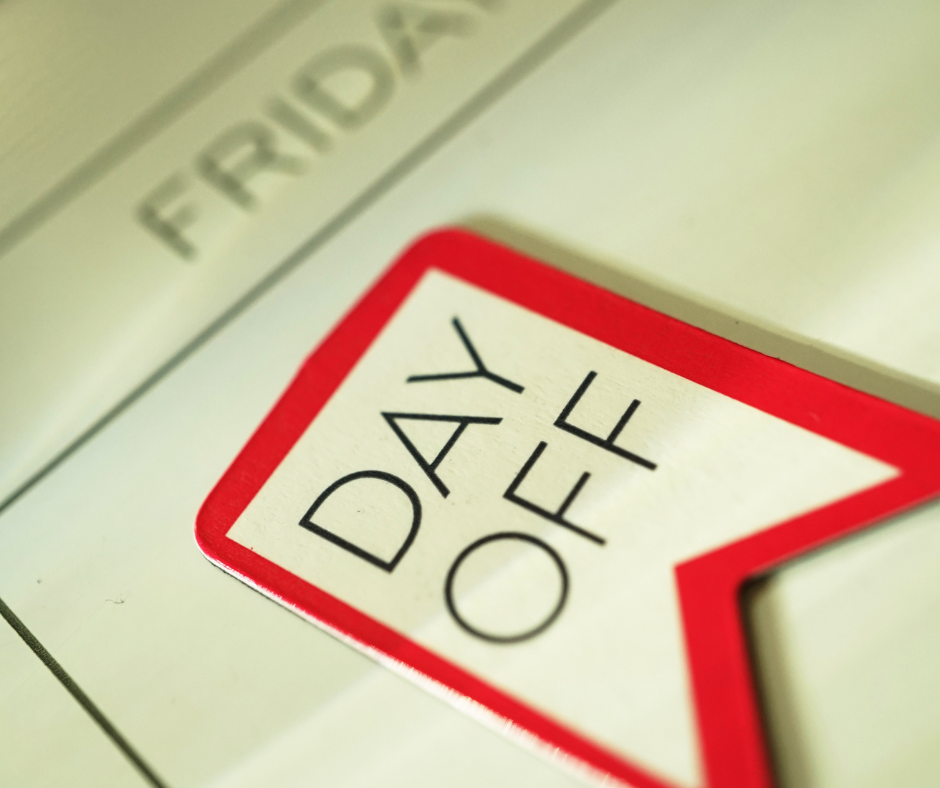Once you get the hang of going to the gym, you start finding pleasure in the activity. You start seeing results, and you feel better than you used to. However, it is very normal that you sometimes go overboard, achieving little to no results from that. Most likely, you are fatigued. Should you take days off? Let’s find out.
Are Off Days Any Good?
If you believe that you have to go at 100% intensity on every workout, we are going to tell you not only you don’t have to, but it is also advised against. The main reason is that throughout the workout, due to several complex metabolic events that ensue from it, the body runs out of energy or of its capability to maintain a particular—usually high—pace.
The only way for the body to recover from energy depletion and muscular soreness—two of the biggest culprits for poor performance—is by simply resting and recomposing the body’s energy resources.
Perks of Taking Days Off
One of the main perks is to enjoy your free time engaging in other activities of your interest. It doesn’t always have to be this way, but once a certain level of commitment to body fitness is achieved, training can become somewhat time-consuming.
It can also be relatively easy to become tired from the repetitiveness some workout regimens demand. Even if you can switch things up from time to time, some patterns need to be repeated to achieve a minimal degree of consistency in your results. So, days off can also be productive ways of keeping a balanced gym-life equilibrium.
Another advantage is that when your body rests, you perform much better than when fatigued. The reasons are merely physiological.
And last but not least, when you regulate the pace of your training by taking days off, you make your body less susceptible to injuries. One of the biggest reasons for injuries is overtraining due to poor workout planning. The stress that is placed on joints, tendons, ligaments, and muscles when working out is cumulative and can get you injured because of this.
Signs You Need a Day Off
Usually, before becoming injured, the body gives away signals that it is time to momentarily press the brakes before anything counterproductive happens. These are telltale signs your body needs to rest:
- Muscle soreness
- Fatigue
- Insomnia
- Apathetic attitude towards training
- Joint, muscle, tendon, or ligament pain
- Sleepiness
- Lack of appetite
- Headaches
- Nausea
If you feel any of these symptoms or a combination of them, it is time to call for quits for a day or two. Deciding whether it is adequate to rest or not can be difficult, but by not overlooking these signs and by sprinkling some common sense into the mix, you’ll know the answer. If you have attained a certain degree of consistency in your workouts and rarely miss any training sessions, resting becomes as important as the time you put into the gym.
Working out doesn’t always feel physiologically good—especially during periods of adaptation—but the strain being put on the body should never reach the level where you experience these symptoms.
What to Do If I Have Become Burnt Out from the Gym?
Becoming burnt after a certain time is completely normal. Sometimes we all need a little help to break away from a rut. Hiring a high-quality personal trainer is the solution. Training should always be a pleasurable activity that keeps you healthy. For personal training and nutrition advice, visit https://thevipfitness.com/


